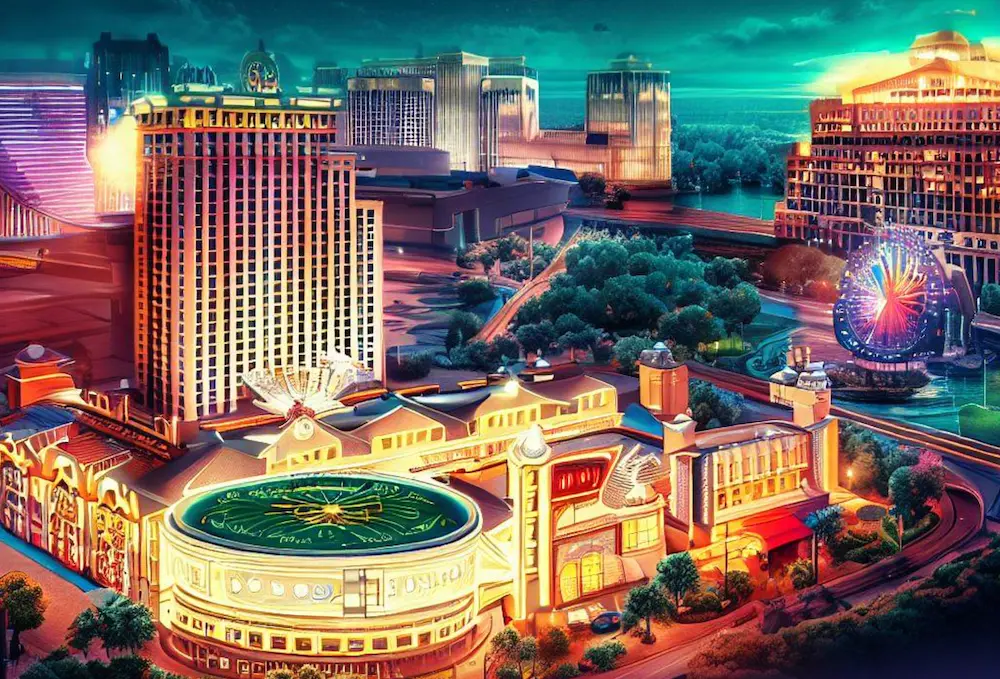
Casino games have long been a fascinating entertainment option, drawing countless of players from diverse cultures around the globe. From the lively casinos of Las Vegas to the thriving gambling halls of the Cotai Strip, these games serve as a common thread that brings together people across various backgrounds. The allure of luck, tactics, and gambling entices not only those seeking to strike it rich but also those looking for a sense of community.
The influence of casino games extends well beyond the gaming floor. They often embody the values and principles of the societies in which they prosper. Games such as Texas hold ’em, 21, and the spinning wheel have embedded themselves into the fabric of mainstream culture, influencing everything from cinema to fashion. As we explore this fascinating intersection of chance and culture, we can comprehend better how casino games shape and are affected by the environment surrounding us.
Historical Evolution of Casino Activities
The roots of gaming activities can be tracked back to ancient cultures, where gambling in different forms was widely practiced. In China, around 2300 BC, a type of luck game known as Keno was common, while in old Rome, soldiers would often wager on the outcomes of their games. The concept of using chance for entertainment and profit evolved over the years, leading to the establishment of more structured games. By the end of the Middle Ages, gambling houses initiated to emerge in the continent, especially in Italy, which introduced early versions of well-liked activities still enjoyed today.
As gambling gained recognition in European regions, the 17th and 18th centuries saw the rise of gaming houses as dedicated venues for gambling. fb88 The earliest official gaming venue, the Ridotto, was founded in Venice in 1638, providing activities like Baccarat and Faro games. This period marked a crucial shifting point, as casinos started to attract not just the wealthy but also the expanding middle-income class. The complexity of games evolved, leading to the development of new regulations and variations that improved the play experience.
In the 19th century, the industrial revolution and shifts in societal standards further changed the environment of casino activities. The launch of the game of roulette and new gaming machines attracted a more diverse crowd, and gambling establishments became seen as acceptable entertainment. This time witnessed the globalization of gambling, as gambling houses spread from the continent to the New World, culminating in the development of the legendary Las Vegas Strip in the twentieth century. The progress of gambling activities has persisted into the modern era, including new technologies and online sites, allowing them accessible to a global market.
# Cultural Significance within Different Societies
Gambling games have significant cultural and social significance within many cultures across the globe. For instance, in Las Vegas, the very core of the urban landscape is woven around gambling establishments, where gambling is not just a pastime but a fundamental aspect of leisure and community interaction. The bright lights and dynamic atmosphere attract a vast audience, showcasing how casino games can influence local financial landscapes and local cultures. This environment transforms the notion of leisure into an engaging experience that influences fashion, melodies, and even cinema.
On the other hand, some societies approach wagering with an air of caution, seeing it through the lens of ethical beliefs and customs. For example, in numerous Eastern societies, games like Mahjong and Pai Gow are rich with history and carry significant social implications. These games are often played during gatherings and celebrations, fostering community bonds and reinforcing family ties. The act of playing these games goes above mere entertainment, reflecting values such as deference to seniors and the importance of shared enjoyment.
Simultaneously, in European countries such as Monaco and Italy, games of chance serve as symbols of opulence and refinement. The elegant atmosphere of these venues attracts both visitors and locals, maintaining a sense of prestige and rarity. The art of Texas Hold’em and the strategic elements of games like the game of baccarat are appreciated, influencing social dynamics and cultivating an appeal that enthralls a varied audience. This emphasizes how casino games can concurrently reflect and mold cultural attitudes towards hazard, benefit, and social interaction.
Financial Influence and Travel Industry
Casino games play a crucial role in the financial context of many areas, particularly those that depend significantly on tourism. The revenue generated from casino operations fuels local economies, creating employment opportunities not only within the casinos but also but also in connected industries such as hotel management, dining, and recreation. This surge of tourists, drawn by the attraction of games and the overall casino experience, stimulates spending across multiple local enterprises, contributing to the economic vitality of the area.
The presence of casinos often leads to the construction of infrastructure, including hotels, public transit, and leisure amenities. These improvements are essential in enhancing the overall visitor satisfaction, making locations more appealing to tourists. Additionally, many casinos contribute in local communities through sponsorship of events and philanthropic activities, further integrating themselves into the community structure of the region. Such investment not only supports economic growth but also cultivates a positive image of the casino industry.
In addition, the global popularity of casino games drives tourism competition, with regions vying to attract gamblers from around the world. Iconic destinations like Las Vegas and Macau have become identifiable with casino culture, drawing millions annually. This advantage encourages innovation and variety within the gambling sector, influencing developments in leisure and hospitality that resonate beyond their borders. The ripple effects of this visitor influx extend wide, impacting local economies and cultural interactions on a global scale.

